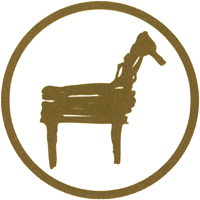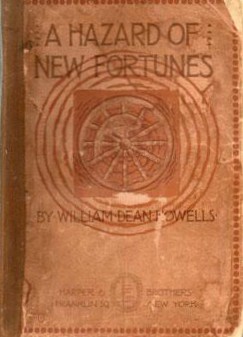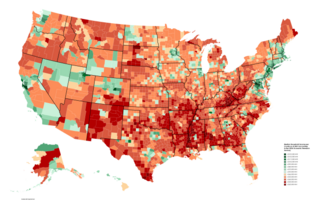
Consumerism is a social and economic order in which the goals of many individuals include the acquisition of goods and services beyond those that are necessary for survival or for traditional displays of status. Consumerism has historically existed in many societies, with modern consumerism originating in western Europe before the Industrial Revolution and becoming widespread around 1900. In 1899, a book on consumerism published by Thorstein Veblen, called The Theory of the Leisure Class, examined the widespread values and economic institutions emerging along with the widespread "leisure time" at the beginning of the 20th century. In it, Veblen "views the activities and spending habits of this leisure class in terms of conspicuous and vicarious consumption and waste. Both relate to the display of status and not to functionality or usefulness."

Wealth is the abundance of valuable financial assets or physical possessions which can be converted into a form that can be used for transactions. This includes the core meaning as held in the originating Old English word weal, which is from an Indo-European word stem. The modern concept of wealth is of significance in all areas of economics, and clearly so for growth economics and development economics, yet the meaning of wealth is context-dependent. A person possessing a substantial net worth is known as wealthy. Net worth is defined as the current value of one's assets less liabilities.

A millionaire is an individual whose net worth or wealth is equal to or exceeds one million units of currency. Depending on the currency, a certain level of prestige is associated with being a millionaire. Many national currencies have, or have had at various times, a low unit value, in many cases due to past inflation. It is obviously much easier and less significant to be a millionaire in those currencies, thus a millionaire in Hong Kong or Taiwan, for example, may be merely averagely wealthy, or perhaps less wealthy than average. A millionaire in Zimbabwe in 2007 could have been extremely poor. Because of this, the term 'millionaire' generally refers to those whose assets total at least one million units of a high-value currency, such as the United States dollar, euro, or pound sterling.
Upper class in modern societies is the social class composed of people who hold the highest social status, usually are the wealthiest members of class society, and wield the greatest political power. According to this view, the upper class is generally distinguished by immense wealth which is passed on from generation to generation. Prior to the 20th century, the emphasis was on aristocracy, which emphasized generations of inherited noble status, not just recent wealth.
In sociology, postmaterialism is the transformation of individual values from materialist, physical, and economic to new individual values of autonomy and self-expression.
Affluenza is a pseudoscientific psychological malaise supposedly affecting wealthy people. It is a portmanteau of affluence and influenza, and is used most commonly by critics of consumerism. It is not a medically recognized disease.

The distribution of wealth is a comparison of the wealth of various members or groups in a society. It shows one aspect of economic inequality or economic heterogeneity.

Ethnobiology is the scientific study of the way living things are treated or used by different human cultures. It studies the dynamic relationships between people, biota, and environments, from the distant past to the immediate present.

A Hazard of New Fortunes is a novel by William Dean Howells.

T. Harv Eker is an author, businessman and motivational speaker known for his theories on wealth and motivation. He is the author of the book Secrets of the Millionaire Mind published by HarperCollins.
The American upper class is a social group within the United States consisting of people who have the highest social rank, primarily due to economic wealth. The American upper class is distinguished from the rest of the population due to the fact that its primary source of income consists of assets, investments, and capital gains rather than wages and salaries. The American upper class is estimated to include 1–2% of the population.
Rachel Sherman is an associate professor of sociology at the New School for Social Research. Her first book, Class Acts: Service and Inequality in Luxury Hotels, analyzes how workers, guests, and managers in luxury hotels make sense of and negotiate class inequalities that marked their relationships. Her second book, Uneasy Street: The Anxieties of Affluence, explores the lived experience of privilege among wealthy and affluent parents in New York City.

Affluence refers to an individual's or household's economical and financial advantage in comparison to others. It may be assessed through either income or wealth.

The Discarded Image: An Introduction to Medieval and Renaissance Literature is a non-fiction book by C. S. Lewis. It was his last book and deals with medieval cosmology and the Ptolemaic universe. It portrays the medieval conception of a "model" of the world, which Lewis described as "the medieval synthesis itself, the whole organization of their theology, science and history into a single, complex, harmonious mental model of the universe."

The inequality of wealth has substantially increased in the United States in recent decades. Wealth commonly includes the values of any homes, automobiles, personal valuables, businesses, savings, and investments, as well as any associated debts.

Redistribution of income and wealth is the transfer of income and wealth from some individuals to others through a social mechanism such as taxation, welfare, public services, land reform, monetary policies, confiscation, divorce or tort law. The term typically refers to redistribution on an economy-wide basis rather than between selected individuals.
Thomas J. Stanley was an American writer and business theorist. He was the author and co-author of several award-winning books on America's wealthy, including the New York Times’ best sellers The Millionaire Next Door and The Millionaire Mind. He served as chief advisor to Data Points, a company founded based on his research and data. He received a doctorate in business administration from the University of Georgia. He was on the faculty of the University at Albany, State University of New York. He taught marketing at the University of Tennessee, University of Georgia and Georgia State University.

A Farewell to Alms: A Brief Economic History of the World is a 2007 book about economic history by Gregory Clark. It is published by Princeton University Press.

Philanthropy in the United States is the practice of voluntary, charitable giving by individuals, corporations and foundations to benefit important social needs. Its long history dates back to the early colonial period, when Puritans founded Harvard College and other institutions. Philanthropy has been a major source of funding for various sectors, such as religion, higher education, health care, and the arts. Philanthropy has also been influenced by different social movements, such as abolitionism, women’s rights, civil rights, and environmentalism. Some of the most prominent philanthropists in American history include George Peabody, Andrew Carnegie, John D. Rockefeller, Henry Ford, Herbert Hoover, and Bill Gates.
The Ultra-Millionaire Tax Act of 2021 is a proposed bill in the United States Congress, which would impose a tax on the wealth of the top 0.05% of Americans. The act was proposed and introduced by Senator Elizabeth Warren (D-Mass), Representative Pramila Jayapal, and Representative Brendan Boyle. The bill mandates that any household or trust with any net worth between $50 million to $1 billion will be taxed 2% of their net worth annually and any household or trust surpassing $1 billion will have a surtax of 1%. Senator Warren expects the bill to raise $3 trillion in revenue over the next 10 years.













